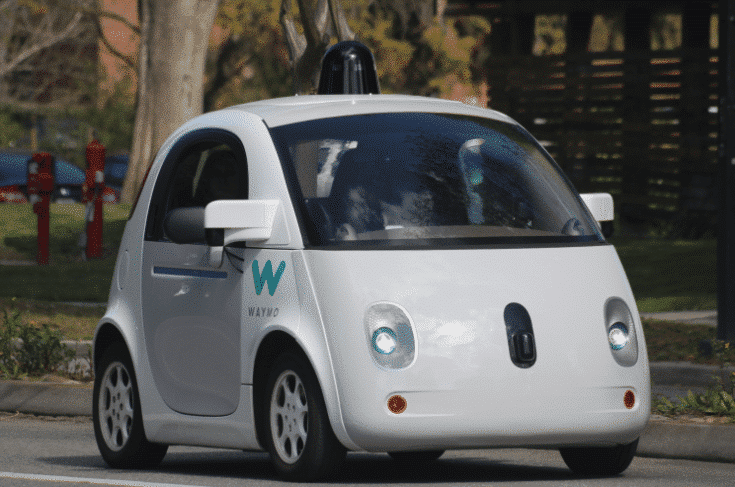Waymo and Uber’s Self-Driving Cars are Getting Bullied

According to corporate giants Waymo and Uber, driverless cars are catching heat from drivers and pedestrians alike. Eric Meyhofer, head of Uber’s self-driving car unit, said that the vehicle-mounted cameras captured the bad behavior.
Check Out: The 2019 Mazda3 Hatchback
Rudeness on the road
Commonly, self-driving cars are subject to rude gestures and words from other road users. However, it’s not rare for more aggressive actions to occur. People tailgate the vehicles, cut them off in traffic, fail to yield right of way, and challenge them to brake. Meyhofer calls the actions “mean spirited.”
“We’ve seen people bully these cars — they feel like they can be more aggressive because we won’t take a position on it, or we’ll allow it,” Meyhofer told The Daily Telegraph. Despite the fact that the aggression is captured on video, he noted that people still want to test the boundaries of what can be done to self-driving cars.
Waymo vehicles, on the other hand, have dealt with slashed tires and even an incident where a self-driving car’s backup driver was threatened at gunpoint.
Possible motivations for harassment
It may seem odd that people hold such resentment for self-driving cars. Phil Simon, a lecturer at Arizona State University, speculates that many people feel threatened by the presence of artificial intelligence. After all, people have lost their lives in self-driving car accidents. While these incidents are rare, Simon suggests others may resent AI for its potential to shake up the job market. Regardless of their motives, people who harass self-driving cars — and their backup drivers — make the road more dangerous for everyone.
Dare to Compare: The Mazda CX-9 vs. the Toyota Highlander
Suggested solutions
It seems like self-driving cars aren’t going away any time soon. As a result, Forbes contributor Lance Eliot explored the upsides and downsides of potential solutions.
- Dividing roads: On a small scale, it might seem viable to create self-driving car lanes. However, road expansion projects are expensive, environmentally destructive, and time-consuming. Eliot concludes that this wouldn’t be a prudent usage of infrastructure dollars.
- New laws: Since laws need to advance with technology, Eliot suggests that self-driving cars should have some legal protections. Drivers should be warned that their disruptive behavior is on camera, and can result in a citation.
How would you feel about encountering a self-driving vehicle on the road? Tell us in the comments below!
Sources: Business Insider, Forbes, Futurism

The News Wheel is a digital auto magazine providing readers with a fresh perspective on the latest car news. We’re located in the heart of America (Dayton, Ohio) and our goal is to deliver an entertaining and informative perspective on what’s trending in the automotive world. See more articles from The News Wheel.

